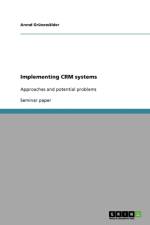von Arend Grünewälder
34,99 €
Seminar paper from the year 2008 in the subject Business economics - Offline Marketing and Online Marketing, grade: 1,7, University of applied sciences, Neuss, course: Marketing Strategies, language: English, abstract: Mobility is not just the fastest-growing technology in the history of mankind. With potentially four billion people being connected by mobile devices by the end of 2009, and many people having their first internet experience over a mobile device rather than a PC, mobility is changing people¿s lives for the better. This is a huge responsibility and test for companies in the business. But Nokiäs CEO, Olli-Pekka Kallasvuo, is claiming that his company has always been good at adapting to both change and challenges.This work examines how well the world largest cell phone manufacturer is prepared to maintain customer¿s continuous trust in their company and products; what is their strategy to continue success while changing.The works examines in three steps Nokiäs strategy execution: the corporate strategy level, the business-level strategy, and the marketing strategy level. Finally, the analysis results are collectively examined in the SWOT-analysis before drawing the conclusion for which of the various generic competitive strategies Nokia is deploying. For most of Nokiäs 140-year history the Finish company was a sprawling conglomerate making toilet paper, rubber boots, wooden flooring, telephone cable, and a bunch of other unrelated products. The firm entered the telecommunication business in the 1960s when it started making radio transmission equipment, and it strengthened its position in that industry during the 1980s when it introduced the first fully digital telephone exchange in Europe and introduced the world¿s first mobile car phone; though at 22 pounds the phone wasn¿t all that mobile and was marketed mainly as a business tool.Today Nokia is the world leader in mobility, leading the convergence of mobility and the Internet. Nokia now makes a wide range of mobile devices, services and software that enable people to go beyond communications to navigation, music, video and more.Nokia is not only the world leader in mobile phones. They are also the world¿s largest camera manufacturer and a leader in digital music with sales in more than 150 countries.







